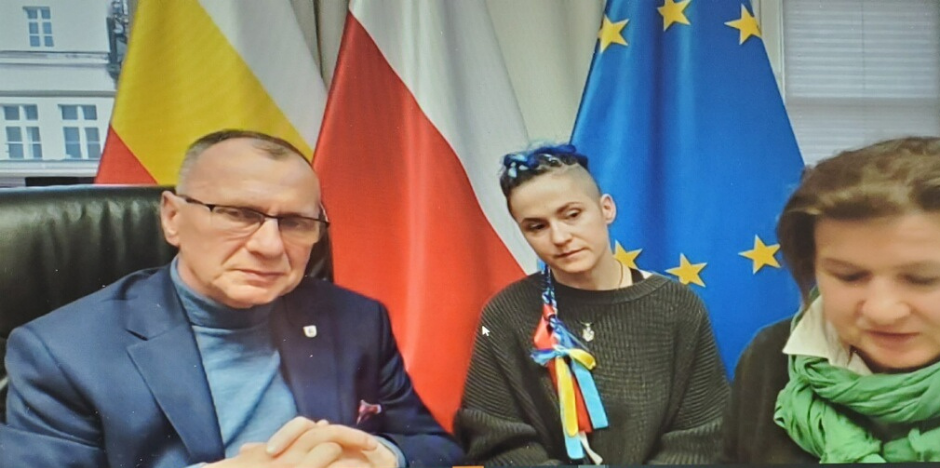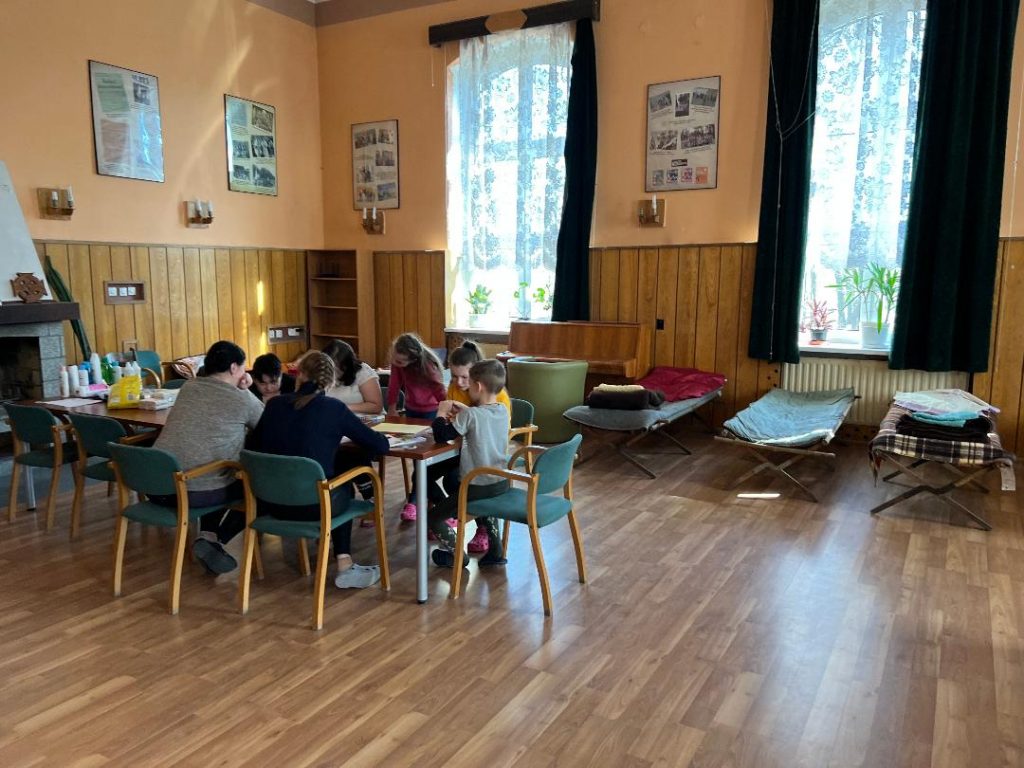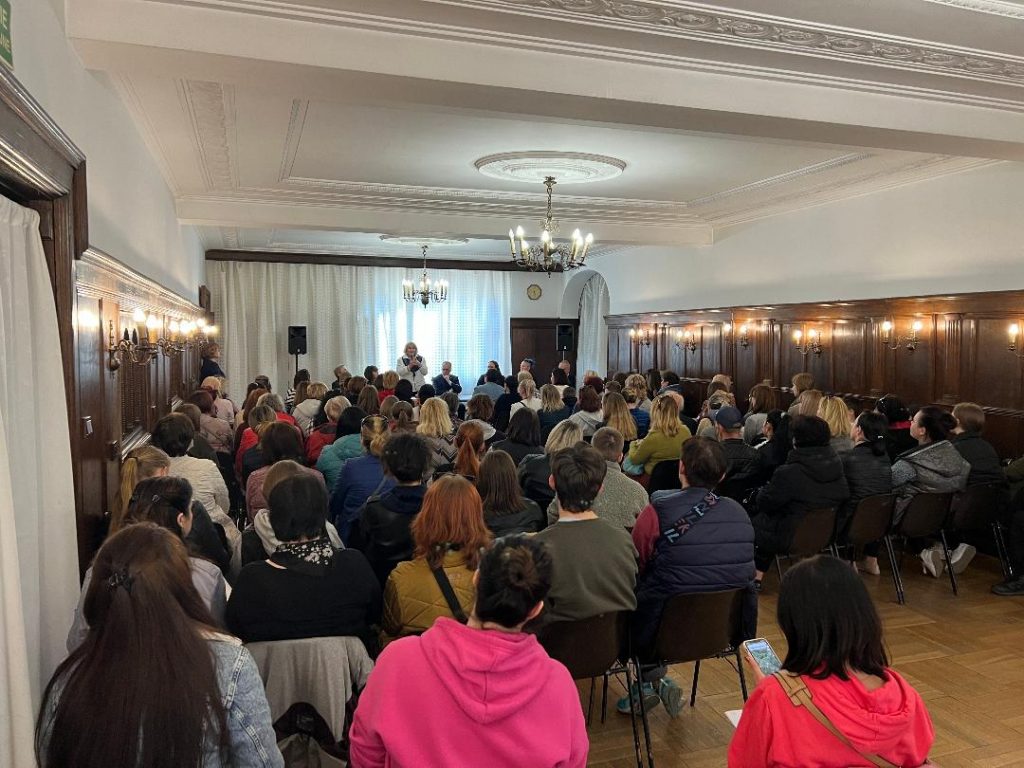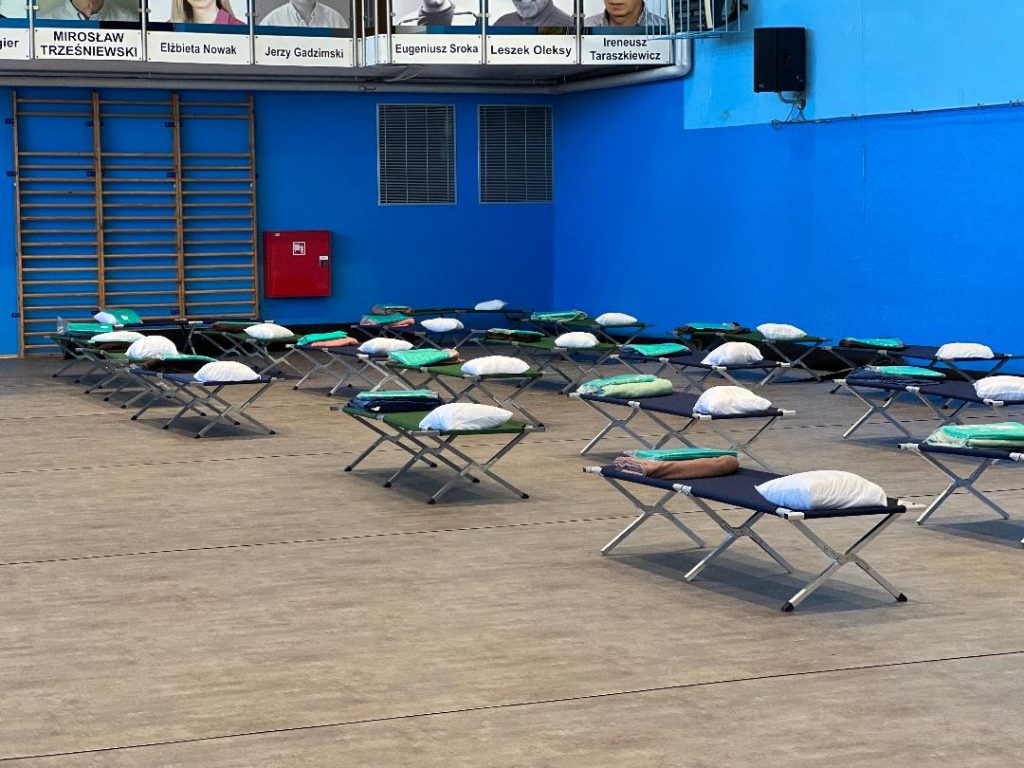As the war in Ukraine continues, its toll on people mounts. For those fortunate enough to cross the border and make it to Tyler’s sister city, Jelenia Góra, Poland, a new life awaits.
Mayor Jerzy Łużniak said the city of about 80,000 in southwestern Poland welcomed close to 3,000 refugees who have made the 700-mile trip to escape their war-torn Ukrainian homeland.

Although the refugees no longer hear the sound of bombs, they still show signs of shock as they arrive and try to assimilate, Łużniak said.
“Usually, they come with not much luggage, a dog or a cat or a small bag. They are just fleeing the war,” Łużniak said. “There are different kinds of emotions. For sure, some are lost coming to a new city. They generally do not know the language.”
Ukraine refugees fleeing to Jelenia Góra are mostly women with children and are grieving for loved ones lost in the war with Russia. Łużniak recalled seeing a woman who had lost her husband and needed a place to start over. Her face revealed the hardships she has endured.
Many former Ukrainian men who lived in Jelenia Góra have left to go and fight in the war, he said.
Arriving refugees must first process through different centers where they are documented and given information about where to find shelter, supplies and schools for their children. Tetiana Kartseva, a Ukrainian liaison, helps them familiarize with local accommodations and with what they will need while they live in a new country.

The citizens of Jelenia Góra are doing their best to help, while accepting support based on a 30-year relationship with Tyler.
As of Sunday night, East Texans have pledged nearly $27,000 to help those efforts.
The money is being sent to Jelenia Góra to help with food, first aid kits or any other supplies. The assistance is appreciated so much by those who need it, Łużniak said.
“I haven’t noticed a shortage of food, but some products are in a short supply, and we try to cover it,” he said. “Food is collected from farms across the area and other places that supply the city.”
When Ukrainians arrive and go through the centers to register for aid, they are told where they will be staying. The mayor said there are several places where they are accommodated, including many residents who have welcomed the refugees into their own homes.
“There are two hotels, two houses and one guest house, hostels, an old office building that used to be used as a tax building,” he said.

Despite the efforts to make the new Polish residents feel safe and comfortable in a new place, becoming used to a new life in a new country does take time, he said.
“Our people are trying to accommodate them here and have really been organizing meetings with some of the Ukrainians and giving them a translator so they may learn it is possible to learn the Polish language,” he said. “We want to introduce them to work, to social life and over 500 young people have just started to attend our primary and secondary schools.”

At the schools, psychologists are provided for students so they can talk about their situations. Teachers also help them learn a new language and help solve the kind of problems that appear nowadays, he said.
No one knows just how long they will be displaced or if they will eventually return to Ukraine
Russia launched a military invasion in Ukraine on Feb. 24. Russian President Vladimir Putin called it a “special military operation,” but many see the attack simply as a war. On Sunday, U.S. Ambassador Mark Brzezinski said Poland has taken in 2.5 million Ukrainian refugees in the past three weeks, according to Fox News.
“At this point, I can report to you that this country has this in hand, although it needs and welcomes resources through its lead NGOs (nonprofit organizations) and charities,” Brzezinski said, noting that includes the Polish Red Cross.
To donate to refugees who need help in Jelenia Góra, go to tylersistercities.org.
Becky Bell, a native of Texarkana, Texas is an award winning writer residing in Magnolia, Arkansas. Bell has more than 20 years of journalism experience and graduated with a journalism degree from Stephen F. Austin State University in Nacogdoches.
Love what you're seeing in our posts? Help power our local, nonprofit journalism platform — from in-depth reads, to freelance training, to COVID Stories videos, to intimate portraits of East Texans through storytelling.
Our readers have told us they want to better understand this place we all call home, from Tyler's north-south divide to our city's changing demographics. What systemic issues need attention? What are are greatest concerns and hopes? What matters most to Tylerites and East Texans?
Help us create more informed, more connected, more engaged Tyler. Help us continue providing no paywall, free access posts. Become a member today. Your $15/month contribution drives our work.







